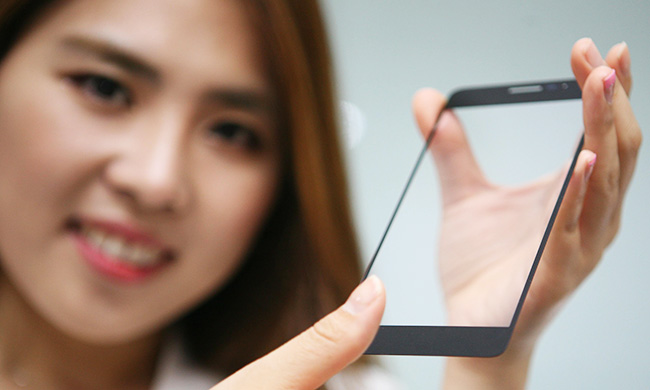LG Innotek has developed an under-glass fingerprint sensor module, allowing users to unlock their smartphones without rubbing a specific fingerprint recognition button.
This will bring a paradigm shift in smartphone design, as the module won’t require an existing circular or rectangular fingerprint sensor button, the world’s largest smartphone camera module maker said in a statement, Sunday.
On top of that, the button-less fingerprint module will also help handset manufacturers to improve such features as waterproofing and dust protection.
“The new module is expected to drastically reduce any smartphone malfunctions, as it does not require a specific button for fingerprint recognition,” said a spokeswoman. “We are in talks with some handset manufacturers to commercialize the new modules within the year.”
The company said the new module came as the company has succeeded in developing a technology to attach a fingerprint sensor into a 0.3-millimeter (mm) space under smartphone’s glass face.
LG Innotek can customize the under-glass module for any handset manufacturer upon their request, the company said.
The company has compounded a high molecular substance into glass, helping it absorb external shocks and guaranteeing a high level of solidity. The compounded glass didn’t break even after a 130 gram ball bearing was dropped on it from 20 centimeters, the company said.
The electronics parts maker of LG Group said the module’s security level is also on par with that of existing button-type fingerprint module, as the in-glass fingerprint module comes with a 0.002 percent of error rate.
The latest feat is part of the company’s efforts to catch up with the rapidly-increasing demand for fingerprint sensors.
The shipments for fingerprint sensor modules are expected to be worth 1.6 billion won by 2020, a threefold increase from 499 million won as of the end of last year, according to market researcher IHS.
“We are gathering all our capabilities into developing differentiated technologies for our customers,” Kim Chang-hwan, LG Innotek’s research and development center chief, said in a statement. “LG Innotek will continue to offer innovative products to serve customers in a more convenient and easy ways.”
This is in line with the company’s recent announcement that it will focus on finding next growth areas at a time when the global smartphone market is suffering a slowdown.
The company said in a second-quarter regulatory filing that it will strengthen its core competency in developing smartphone modules to meet the growing needs from its key partners including LG Electronics and handset manufacturers in China.























